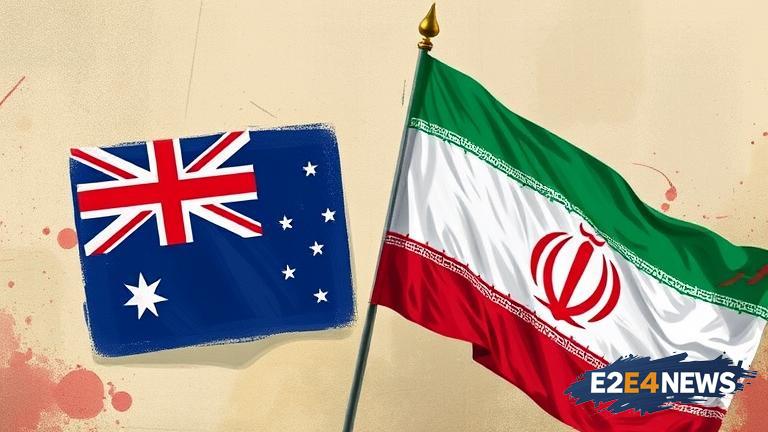In a move that underscores the growing concern over antisemitic incidents globally, Australia has taken the unprecedented step of expelling an Iranian diplomat. This decision comes in the wake of a series of antisemitic arson attacks that have been linked to Iranian elements. The Australian government, known for its strong stance against hate crimes and its commitment to protecting the rights of all its citizens, has made it clear that such acts will not be tolerated on its soil. The expulsion of the diplomat is seen as a strong message to Iran and other countries that Australia will not hesitate to take firm action against any form of extremism or hate speech. The antisemitic arson attacks, which targeted Jewish institutions and symbols, have been condemned by leaders across the political spectrum in Australia. The incidents have also sparked widespread outrage among the Australian public, with many calling for increased security measures to protect Jewish communities. The Australian government has assured the public that it is taking all necessary steps to ensure the safety and security of all its citizens, regardless of their religious or ethnic background. The diplomatic fallout from this incident is likely to be significant, with potential implications for Australia’s relations with Iran and other countries in the Middle East. Iran, known for its controversial stance on Israel and its support for various militant groups, has been accused of fostering an environment of hate and intolerance. The expulsion of the diplomat is also seen as a test of Australia’s resolve in standing up against extremism and promoting tolerance and understanding. The incident has sparked a renewed debate about the need for vigilance and cooperation in combating hate crimes and extremism. Australia’s Jewish community has welcomed the government’s decision, seeing it as a strong statement against antisemitism. However, some have also expressed concern about the potential for retaliation and the need for increased security measures. The Australian government has pledged to work closely with Jewish community leaders and organizations to ensure their safety and security. The incident has also highlighted the importance of international cooperation in combating extremism and hate crimes. Australia has called on other countries to join it in condemning antisemitic attacks and in taking firm action against those responsible. The diplomatic expulsion is part of a broader effort by Australia to promote tolerance and understanding and to combat extremism in all its forms. The country has a long history of promoting multiculturalism and diversity, and the government has made it clear that it will not tolerate any form of hate speech or extremism. The incident has sparked a significant amount of media attention, both in Australia and internationally, with many outlets condemning the antisemitic attacks and welcoming Australia’s firm response. The Australian government’s decision to expel the diplomat has been seen as a significant escalation in diplomatic tensions between Australia and Iran. The incident is likely to have significant implications for Australia’s relations with Iran and other countries in the region. In conclusion, Australia’s decision to expel an Iranian diplomat over antisemitic arson attacks marks a significant moment in the country’s efforts to combat hate crimes and extremism. The government’s firm stance against antisemitism and its commitment to protecting the rights of all its citizens have been widely welcomed, both in Australia and internationally.
